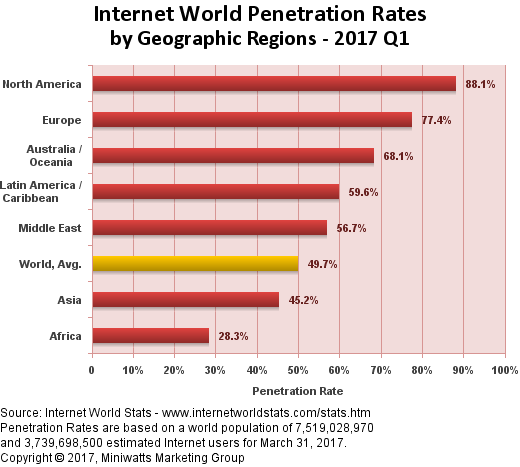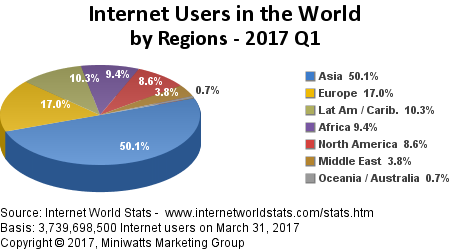Land Of The Rising Censorship

( Image credit: yoshiffles)
A recent Brookings study projects that 88% of the next billion people to enter the middle class will live in Asia.
McKinsey projects the Chinese middle class' allocation for discretionary spending to rise from 34% in 2013 to 44% by 2030.
Inter-Asian trade will double by 2020 and Asia will be the world's largest trading region by 2025.
With Asia's middle class boom projected to continue so continues to grow the Asian presence online.

Despite only ~50% of Asia having access to the internet, the Asian market comprises over half of all internet users.

With this growing market penetration the growing problem of internet censorship in Asia is becoming more evident and widespread.
In Vietnam blogger Nguyen Ngoc Nhu Quynh was jailed for posting material critical of the government.
In Cambodia a university student was sentenced to 18 months in prison for calling for a governmental reform.
In Indonesia the government is drafting legislation to ban LGBT websites.
Also in Indonesia a governor was sentenced to two years in prison for online blasphemy.
In Thailand content critical of the monarchy can result in a harsh prison sentence.
Also in Thailand, content mentioning the above regulation is paradoxically censored.
In Malaysia articles relating to a scandal involving Prime Minister Najib Razak embezzling millions are being heavily censored.
In Laos the legality of criticism against the government is unclear, leading to often unexpected arrests and detentions.
In India states in which there are violent protests often have media coverage and access censored.
India recently ban 22 social media sites in the province of Kashmir.
Neighboring Bangladesh heavily censors not only social media and internet posts but also TV and broadcast media.
Myanmar actively censors the abuse of minorities, going so far as to fire a reporter who authored an article about the serial rape of Rohingya women.
In Singapore a teenager was jailed for "wounding religious feelings" under a old sedition law allegedly used to censor free speech in the country.
China, known for its Great Firewall, is notorious for suddenly and radically censoring internet content. This problem is even more prominent in autonomous regions like Tibet, where a blogger was recently jailed for 3 years for "inciting separatism", and Xinjiang, where a community leader was sentenced to life in prison for the same crime as his Tibetan counterpart.

(Image source: Facebook Page for Thomasu Kutty Vittodaaa )
The growing issue of internet censorship in Asia has no clear or easy solution. As the Asian market continues to grow at unprecedented rates the current censorship issues will only become more exasperated. I believe that opening free and critical dialogue on these issues in a public forum will allow our respective communities to come to a decision best suited for everyone involved.
Open communication leads to open solutions and a more peaceful and united world.
Thanks so much for taking the time to check out my post! Please leave a comment so we can get to know one another better and continue to learn and grow as a community. Cheers!
-Ray
The United States is on it's way back up. Like they said today on CNN we have enough Coal, Natural Gas and Oil to last over the next 250 years.